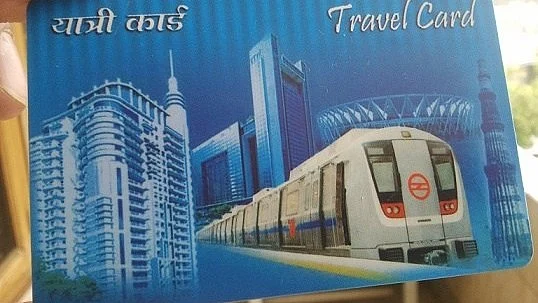Passengers of Delhi Transport Corporation (DTC) and cluster buses will now be able to use their metro cards to pay for their bus rides in Delhi from Friday, 24 August, Transport Minister Kailash Gahlot said on Monday, 20 August.
The launch of the e-paying services, through a “common mobility card” comes after a five-month delay. It had been announced by Chief Minister Arvind Kejriwal in January and was originally scheduled to be launched by 1 April, in all of Delhi’s 5,500 buses, the Hindustan Times reports.
“People will be able to use their metro cards in all buses of Delhi from August 24. I have directed officers to start advertisement campaigns so people are aware of the service,” the report, quoting Gahlot, stated.
With the activation of the service, Delhi would become the first city in India to enable an e-purse travel system which performs transactions as low as Rs 5.
How it Works
To avail this service, a passenger will have to provide their metro smart card to the bus conductor, who will swipe their card, from which the fare will automatically be reduced.
The government’s decision to activate this facility stemmed from the fact that, on an average, buses carry more daily commuters than metros, the report adds.
Government data suggests that while the daily average ridership of Delhi metro is 26 lakh, state-run buses carry about 35 lakh people, according to the report.
The decision to finalise the common e-paying services for both metros and buses, was taken at a meeting held by Gahlot on Monday, 20 August. The meeting was attended by the Managing Director (MD) of Delhi Metro Rail Corporation (DMRC) Mangu Singh, DTC MD Manoj Kumar, DIMTS MD M Rajshekhar and transport department officials.
“Nirav Modi Scam Added to Delay”
Internal sources told the newspaper that the PNB scam involving diamantaire Nirav Modi further delayed the service.
After the scam, the RBI stopped quasi-bank guarantee instruments, such as a letter of undertakings and letter of comfort. So, the concessionaire had to find alternative payment methods to the vendor in South Korea from where these chips are being purchased. So, this took time.An official told Hindustan Times
This came after the first delay, which was caused due to the DTC, which operates 3,750 buses in the city. The DTC had faced delays in receiving the secure access module (SAM) chips, which need to be fitted in every electronic ticketing machine (ETM), which would in turn enable the e-payment.
(With inputs from Hindustan Times)
(At The Quint, we question everything. Play an active role in shaping our journalism by becoming a member today.)
